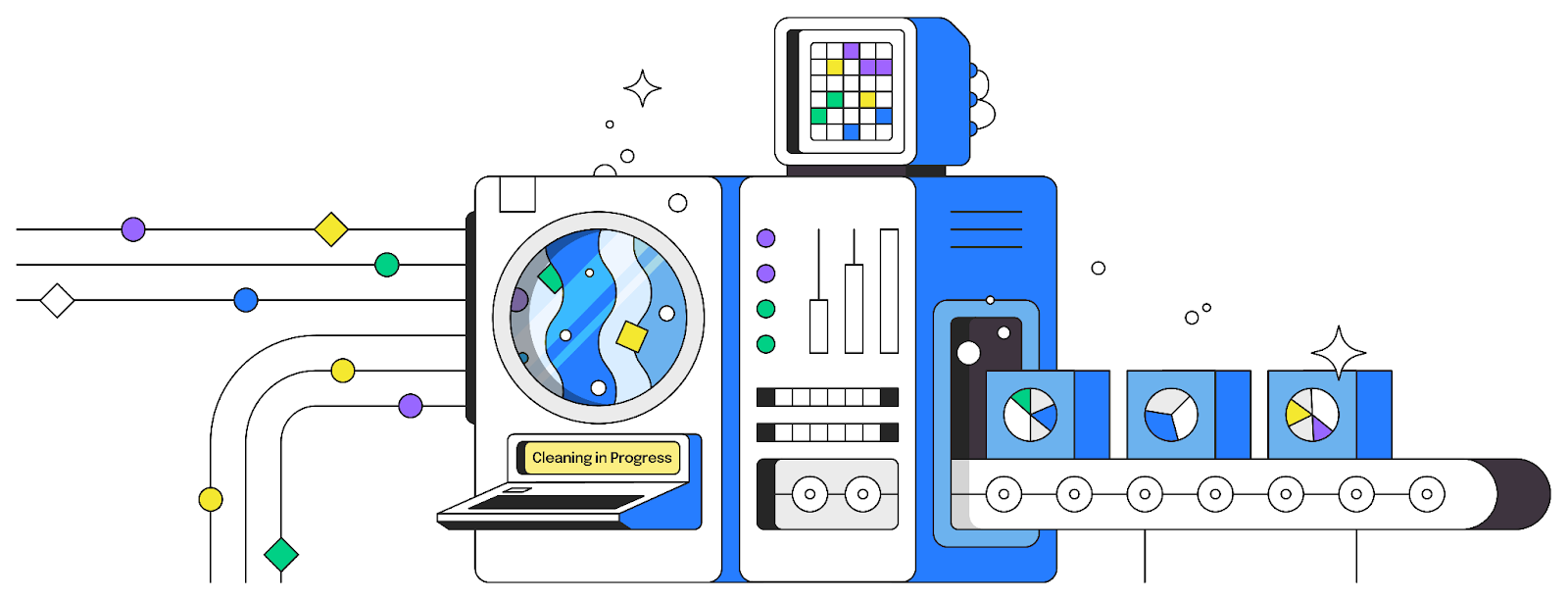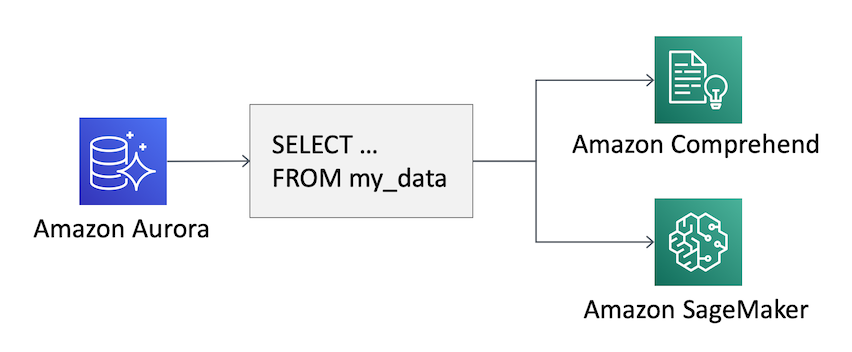Data generation has experienced exponential growth in recent years, mainly due to the Internet of Things (IoT), social media, and other digital platforms. In a report, IDC predicts that the amount of data generated globally will increase from 33 zettabytes in 2018 to 175 zettabytes by 2025, which is ten times more in just seven years. As the volume of data continues to grow, businesses face the challenge of managing and analyzing their data efficiently, which is where AI powered databases come in. By integrating AI algorithms and techniques into traditional database management systems, businesses can automate routine tasks, improve data quality, and gain insights from their data.
AI powered database has the potential to transform the way businesses manage their data and make decisions, enabling them to quickly analyze vast amounts of data and improve the accuracy and reliability of data for better decision-making and cost savings. In this article, you will learn everything about AI in databases, its benefits, and examples of AI powered database, the future of database management with AI, and the crucial role played by AI solution companies for businesses.
Let’s get started!
What is AI Powered Database?
A database that utilizes artificial intelligence techniques to improve its functionality and data management is known as an AI-powered database. These databases rely on advanced algorithms and machine learning to enhance the speed, accuracy, and efficiency of data processing.
One way AI powered database work is by using machine learning algorithms to optimize the database structure automatically. This means that the database can adjust itself based on the data it receives, ensuring that it is structured in a way optimized for fast and efficient processing. As a result, organizations can process and analyze data more quickly without the need for manual intervention.
Another way AI-powered databases work is by using natural language processing to improve search capabilities.
The database can retrieve relevant information quickly and accurately by analyzing the language used in search queries. This is especially beneficial for businesses that handle large amounts of unstructured data, such as social media posts or customer feedback.
AI-powered databases are transforming how enterprises manage and analyze their data. Businesses can now gain insights and make decisions more efficiently and accurately than ever by automating repetitive tasks and utilizing advanced algorithms to optimize data processing. In addition, AI-based databases can handle complex data types and formats, making it easier for businesses to gain insights from diverse sources of information.
With the continuous evolution of AI technology, we can anticipate the emergence of more sophisticated AI-powered database systems that can provide superior functionality and performance. These databases are expected to become a crucial tool for businesses seeking to gain a competitive advantage by leveraging data-driven insights.
How Does AI Use Data?
Artificial intelligence is a powerful technology transforming how businesses use data. AI-powered systems are designed to analyze and process large volumes of data quickly and accurately, identify patterns and anomalies, and make predictions based on data trends. This guide will explore how AI uses data and its impact on businesses.
Data Cleansing
Data Cleansing is one of the most important ways AI uses data in data cleansing. Data cleansing, or data scrubbing, refers to identifying and removing duplicate, incomplete, or incorrect data from a database, improving its accuracy and reliability. AI algorithms can process large volumes of data fast and accurately, making it easier for businesses to recognize and remove data errors. For example, an AI-powered tool can scan an email database and identify and remove duplicate email addresses, ensuring that marketing campaigns reach the intended audience.
Data Analysis
Another way AI uses data is through data analysis. AI algorithms can perform complex data analysis tasks, such as identifying patterns and trends in large data sets. This can help businesses make more informed decisions, such as identifying customer trends, predicting demand for products or services, and optimizing production processes. For example, an AI-powered tool can analyze sales data to identify patterns in customer buying behavior, allowing businesses to develop more effective marketing strategies.
Predictive modeling
Predictive modeling involves building models based on historical data to predict future outcomes. These models can be used to forecast customer behavior, market trends, or future demand for products or services. Predictive modeling can help businesses make more informed decisions and adjust their strategies accordingly. For example, a retail business can use predictive modeling to anticipate demand for specific products during certain times of the year, ensuring adequate inventory.
Natural Language Processing (NLP)
Natural language processing (NLP) is a type of AI technology that uses data. NLP involves teaching computers to comprehend human language and communicate with humans naturally and intuitively. This technology can be used to analyze text data, such as customer feedback, social media posts, or news articles, to identify trends and sentiments. For example, an AI-powered tool can analyze customer feedback on social media and identify common complaints, allowing businesses to address them and improve their products or services.
Computer Vision
Computer vision is another AI technology that uses data. It involves teaching computers to analyze and interpret visual data, such as images or videos. Computer vision can be used for many applications, such as identifying objects, detecting fraud, or improving safety in manufacturing processes. For example, an AI-powered tool can analyze security camera footage and identify potential security threats in real-time.
Fraud Detection
AI algorithms make detecting fraudulent patterns and anomalies in large datasets possible. These algorithms can flag suspicious transactions, identify unusual behavior, and generate alerts for further investigation. This technology is often utilized in the financial industry to detect financial crimes such as credit card fraud and money laundering.
Examples of AI using data:
- Personalized Recommendations: Online shopping platforms such as Amazon and Netflix use AI algorithms to provide personalized recommendations to their users. The algorithms analyze a user’s past behavior, purchase history, and other factors to suggest products and services that the user will likely be interested in.
- Virtual Assistants: Virtual assistants such as Apple’s Siri, Google Assistant, and Amazon’s Alexa use NLP algorithms to interpret user queries, understand natural language, and provide relevant responses. These algorithms analyze massive amounts of data to recognize speech patterns and generate appropriate responses.
- Autonomous Vehicles: Autonomous vehicles use AI algorithms to navigate roads, avoid obstacles, and make real-time decisions. The algorithms analyze sensor data from cameras, radar, and other sensors to detect road conditions, traffic patterns, and other driving factors.
- Healthcare Diagnosis: AI algorithms are used in healthcare to analyze medical images, detect anomalies, and aid in diagnosis. For example, AI algorithms can analyze X-rays to see signs of pneumonia or mammograms to detect breast cancer.
Real-World Examples of AI Using Data in innovative ways
- Netflix uses AI algorithms to analyze customer viewing habits and recommend new content based on their preferences.
- Amazon uses predictive modeling to anticipate customer demand for products, optimizing its supply chain to ensure it has the right products in stock at the right time.
- AI-powered tools in the healthcare industry allow healthcare providers to analyze patient data and identify patterns that can help diagnose diseases and develop more effective treatments.
- Self-driving cars utilize computer vision and AI algorithms to assess their environment and determine the safest way to travel on the road.
The Benefits of AI-Powered databases
- Automated Data Processing: One of the most significant benefits of using AI-powered database is the ability to automate data processing tasks. By leveraging AI algorithms, businesses can process large volumes of data more quickly and accurately than traditional manual processes. This saves time and resources while increasing efficiency and productivity.
Example: Financial services companies can use AI-powered database systems to automate credit analysis and decision-making processes. The system can analyze large volumes of data such as customer credit history, financial statements, and other credit risk factors to provide an accurate credit score in real-time.
- Better Data Quality & Accuracy: AI powered database can help to improve data quality and accuracy by identifying errors and inconsistencies in data sets. This can help to improve decision-making and reduce the risk of errors and incorrect analysis.
Example: An e-commerce company can use AI-powered databases to improve product data quality. The system can analyze product data from different sources, such as manufacturers and suppliers, identify and correct errors, and ensure consistent product information across various sales channels.
- Personalization: AI-powered databases can help businesses to personalize their services and offerings based on customer preferences and behavior. By leveraging customer data, companies can provide tailored recommendations and offer that are more likely to be accepted.
Example: An online retailer can use AI-powered databases to personalize product recommendations based on customer browsing and purchase history. The system can analyze customer behavior data to provide personalized recommendations, which can help to increase sales and customer satisfaction.
- Cost Savings: By optimizing processes and identifying cost-saving opportunities, AI-powered databases can help businesses reduce operational costs and increase profitability.
Example: A manufacturing company can use AI-powered databases to optimize production processes and reduce waste. The system can analyze production data to identify bottlenecks and inefficiencies, which can help to reduce costs and increase profitability.
- Better Risk Management: AI powered database can help businesses to identify and manage risks more effectively. By analyzing data in real-time, companies can detect potential risks early and take corrective action to mitigate them.
Example: A financial services company can use AI powered databases to detect fraudulent activities such as money laundering. The system can analyze transaction data in real-time to detect suspicious activities and alert compliance officers to investigate further.
- More Efficient Manufacturing: Using AI powered database for real-time data analysis can optimize manufacturing processes. This helps businesses identify inefficiencies and bottlenecks, reducing waste and increasing productivity.
Example: An automotive manufacturer can use AI-powered databases to optimize production processes by analyzing data from different sources such as suppliers, customers, and production equipment. The system can identify bottlenecks and inefficiencies in real-time, which can help to reduce waste and increase efficiency.
- Enhanced Supply Chain Management: Using AI databases can significantly improve supply chain management by providing real-time data and insights. Businesses can optimize delivery routes and reduce lead times by analyzing data from various sources, including suppliers, logistics, and customers.
Example: A retail company can use AI-powered databases to optimize supply chain control by analyzing data from different sources such as suppliers, logistics, and customers. The system can identify the most efficient delivery routes based on traffic patterns and other factors, which can help to reduce costs and improve customer satisfaction.
- Improved Marketing: AI and databases can improve marketing by providing valuable insights into customer behavior and preferences. They can also analyze market trends and predict future demand, enabling businesses to create more effective marketing campaigns.
Example: an e-commerce company can use AI-powered databases to analyze customer behavior and preferences and create personalized marketing campaigns based on their interests.
- Better Forecasting for Industries: AI databases can provide accurate and reliable forecasting for different industries. They can analyze historical data and identify patterns, enabling businesses to predict future trends and adjust their strategies accordingly.
Example: A weather forecasting company can use AI-powered databases to analyze historical weather data and predict future weather patterns, enabling them to provide more accurate and reliable forecasts.
10. Improved Decision-Making: companies can get valuable insights to improve decision-making across different industries using AI based database system. Analyzing data and identifying patterns can help businesses make better decisions based on reliable data.
Example: A financial services firm can use AI-powered databases to analyze market trends and identify investment opportunities, enabling them to make better investment decisions.
Overall, AI and databases have numerous benefits for businesses across different industries. They can automate processes, improve data quality, personalize customer experiences, reduce costs, and improve risk management.
AI Database Popular Examples
Several popular examples of AI-powered databases have gained recognition in the industry. Here are a few notable examples:
- Amazon Aurora: Developed by Amazon Web Services (AWS), Amazon, Aurora is a relational database service that combines traditional databases’ benefits with AI’s power. It uses machine learning algorithms to optimize performance, automatically scale resources, and ensure high availability.
- Oracle Autonomous Database: Oracle Autonomous Database is a self-driving database that utilizes AI and machine learning to automate various management tasks. It can automatically patch, tune, and secure the database while providing high performance and reliability.
- Microsoft Azure Cognitive Search: Azure Cognitive Search, offered by Microsoft Azure, is a cloud-based search-as-a-service solution. It leverages AI capabilities to extract insights from unstructured data, enabling users to perform advanced searches, natural language queries, and cognitive skills enrichment.
- IBM Db2 AI for z/OS: Db2 AI for z/OS is an AI-powered database management system designed specifically for IBM’s z/OS mainframe platform. It uses machine learning to optimize query performance, improve automation, and proactively manage database resources.
- Google Cloud AutoML Tables: AutoML Tables, part of Google Cloud’s AutoML suite, is a no-code machine learning platform that simplifies the development and deployment of custom machine learning models for tabular data. It can train models for predictive analytics, fraud detection, and recommendation systems.
- MongoDB Atlas: MongoDB Atlas is a fully managed cloud database service that offers built-in AI capabilities. It provides features like automated performance optimization, intelligent indexing, and real-time analytics using MongoDB’s native query language and AI-powered data analysis.
- RedisAI: RedisAI is an open-source module for Redis, an in-memory data structure store. It integrates AI capabilities by allowing users to execute deep learning models directly within Redis. This enables real-time inferencing and AI-powered operations on data stored in Redis.
Industry leaders are using AI-powered databases to enhance performance, automate tasks, and analyze data effectively. These solutions showcase the integration of AI technology.
AI Databases Open Source
Open-source AI databases have become increasingly popular in recent times due to their versatility, transparency, and collaborative development approach. These databases provide several advantages, including cost-effectiveness, flexibility, and the ability to personalize and contribute to the codebase.
An open-source AI database is a database system that uses open-source software and AI and machine learning technologies to improve data processing, analysis, and decision-making. These databases are free for anyone to use, modify, and distribute, allowing greater flexibility, collaboration, and innovation.
Developers can access powerful AI algorithms and libraries to create customized applications, models, and workflows. These databases also offer automated data processing, predictive analytics, and natural language processing, making it easier for businesses to extract insights into customer behavior, market trends, and business operations from their data.
Let’s take a look at two well-known open-source AI databases-
- Apache Hadoop: Apache Hadoop is an open-source framework commonly used for storing and processing large datasets in a distributed manner. Although it is not designed exclusively for AI applications, Hadoop’s scalability and fault tolerance makes it an excellent option for storing and processing data in AI projects. Additionally, it can be integrated with various AI tools and frameworks, enabling users to create advanced analytics and machine learning models.
Example: A data-driven company can leverage Apache Hadoop to store and process vast amounts of unstructured data, such as text, images, and sensor data. They can then apply AI algorithms to this data to gain valuable insights for business intelligence, predictive analytics, or recommendation systems.
- PostgreSQL with PostGIS: PostgreSQL is a reliable open-source RDBMS that is highly extensible and SQL compliant. Integrating the PostGIS extension transforms into a robust geospatial database that can effectively manage complex geospatial data and execute spatial queries.
Example: An environmental research organization can use PostgreSQL with PostGIS to store and analyze geospatial data related to climate patterns, biodiversity, and land use. They can apply AI techniques to identify patterns, predict ecological changes, and support decision-making for conservation efforts.
Open-source AI databases offer versatility and potential for various applications. They allow businesses to modify and improve the software, providing flexibility and control over AI infrastructure.
Finding the Right AI Consulting Services
Implementing AI-powered databases requires expertise and guidance to ensure successful integration and optimal utilization of these technologies. Finding the right AI consulting services is crucial for businesses leveraging AI to its full potential. Here are some key considerations when selecting AI consulting services-
- Domain Expertise: Look for consultants with industry-specific knowledge and experience.
- Technical Proficiency: Assess their skills in AI technologies, machine learning, and data analytics.
- Track Record: Review their past projects and client references for successful implementations.
- Customization and Scalability: Ensure they can tailor solutions to fit your unique
requirements and support future growth. - Data Privacy and Security: Verify their adherence to data protection regulations and robust security protocols.
- Collaborative Approach: Seek consultants who involve your team and foster effective communication.
- Continuous Support and Training: Check if they provide ongoing support and training, and stay updated on AI advancements.
Also check: AI-Powered ERP-Advantages and Challenges
Wrapping Up
Leveraging AI-powered databases can bring numerous benefits to businesses, ranging from automated data processing and improved data quality to enhanced personalization and cost savings. With the growing popularity and advancements in AI technologies, it is essential to have the right expertise and guidance during the implementation process. That’s where AI consulting services can play a pivotal role.
Consulting AI offers end-to-end AI solutions and expertise in integrating AI technologies with databases, helping businesses unlock the full potential of AI-powered databases. By partnering with Consulting AI, organizations can navigate the complexities of AI implementation, optimize their databases, and drive innovation to stay ahead in today’s competitive landscape.
Frequently Asked Questions
AI gained significant popularity in the mid-2010s when breakthroughs in deep learning, increased computational power, and the rise of big data enabled remarkable advancements in areas like image recognition, natural language processing, and autonomous vehicles.
In AI, a database refers to a structured collection of organized data that is stored and managed electronically. Databases play a crucial role in AI by providing a centralized repository for storing and retrieving data used to train, test, and operate AI models. They enable efficient data storage, retrieval, and manipulation, supporting AI tasks such as training machine learning models, natural language processing, and data analysis. Databases help AI systems access and process information, facilitating better decision-making and more accurate predictions.
Databases are crucial in AI because they provide the structured storage and efficient retrieval of data required for training and deploying machine learning models. AI algorithms need large volumes of data to learn patterns, make predictions, and improve their performance over time. Databases ensure data integrity, accessibility, and scalability, enabling AI systems to process information effectively and deliver meaningful insights and actions.
The four main types of databases are:
Relational Databases (RDBMS): Structured databases using tables to store data with predefined relationships between them. Examples include MySQL, PostgreSQL, and Oracle.
NoSQL Databases: Non-relational databases designed for flexible and scalable data storage, including document stores, key-value stores, column-family stores, and graph databases. Examples include MongoDB, Redis, Cassandra, and Neo4j.
Columnar Databases: Optimized for querying and managing large volumes of columnar-structured data, often used for data warehousing and analytical purposes. Examples include Google BigQuery and Apache HBase.
In-Memory Databases: Store data primarily in RAM, enabling faster data retrieval and processing. They’re often used for real-time analytics and high-performance applications. Examples include Redis (can be used as in-memory) and SAP HANA.
A database refers to a structured repository of interconnected data, systematically stored and managed for efficient storage, retrieval, and manipulation. It serves as a reliable resource for organizing and accessing information in diverse applications.
Several databases are suitable for AI applications, but popular choices include:
- MongoDB: Flexible and scalable, good for handling unstructured data.
- MySQL: Reliable and widely used for structured data.
- PostgreSQL: Feature-rich and supports advanced data types.
- Amazon DynamoDB: Managed NoSQL database, great for serverless AI deployments.
- Neo4j: Graph database, ideal for AI tasks involving complex relationships.


















